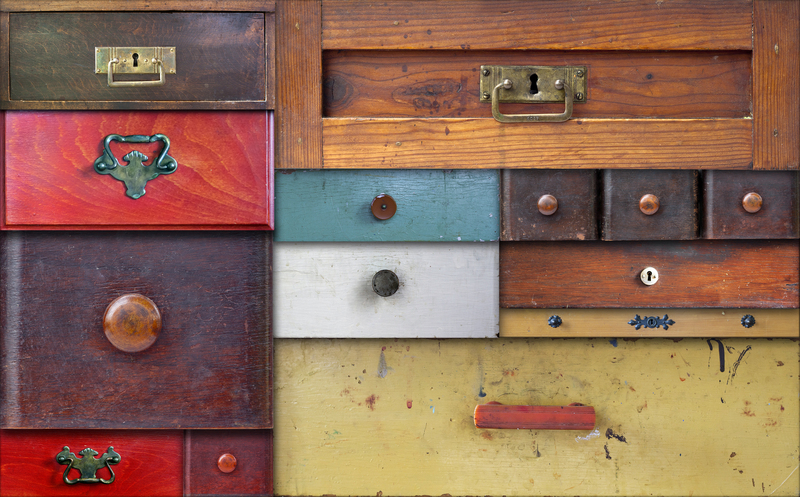Simplifying Hard Rubbish: Disposal Techniques
Every household at some point faces the daunting task of disposing of hard rubbish. Whether it's old furniture, broken electronics, or miscellaneous items that don't belong in the regular trash, learning how to effectively manage these bulky waste items is essential. In this comprehensive guide, we'll demystify the process of disposing of hard rubbish and introduce efficient techniques to make life simpler.
Understanding Hard Rubbish
First, let's define what hard rubbish actually is. Hard rubbish generally refers to large household items that cannot be easily disposed of through normal waste collection services. These might include:
- Old furniture like sofas and beds
- Broken appliances such as refrigerators and washing machines
- Home renovation debris
- Electronic waste (e-waste), including computers and televisions
Disposing of these items requires specific methods, and understanding these can save time, money, and help the environment.

Methods for Disposing of Hard Rubbish
1. Local Council Collections
Many local councils offer specialized collection services for hard rubbish. These programs are usually scheduled at certain times of the year or can be requested as needed. This method is convenient because the council takes on the responsibility of properly disposing of your waste. Here are some benefits:
- Cost-effective: As these services are often included in your municipal taxes, there's usually no extra charge.
- Regulated: Councils ensure that rubbish is disposed of in an environmentally friendly way.
- Time-saving: Pick-up is organized for you, reducing hassle.
2. Hiring a Skip Bin
If you are planning a major cleanup or a home renovation, hiring a skip bin is an excellent option. Skip bins come in various sizes, allowing you to choose one that fits your needs. Here are some advantages:
- Flexibility: Great for large projects where a significant amount of rubbish is generated.
- Convenience: Bin is delivered to your location and collected when full.
- Time-efficacy: Allows you to fill the bin at your own pace.
However, it's important to be aware of bin placement regulations in your area to avoid fines.
3. Recycling Centers
For electronics and smaller hard rubbish items, consider using recycling centers. These facilities specialize in processing various materials to recover valuable components. The benefits include:
- Sustainability: Proper recycling reduces landfill waste and recovers materials for reuse.
- Environmental contribution: Helps minimize the carbon footprint associated with landfill disposal.
- Community programs: Some centers offer incentives for recyclable returns.
Recycling centers often offer detailed guidelines on what they accept, so check their policies before visiting.
4. Selling or Donating
One man's trash is another man's treasure. Consider selling or donating items that are still in good condition. This technique not only helps the environment but also benefits your community.
- Online marketplaces: Platforms like eBay or Facebook Marketplace facilitate selling used items easily.
- Charity organizations: Donating furniture or electronics to nonprofits supports those in need.
- Garage sales: A great way to declutter and connect with neighbors can be by holding a sale.
Ensure items are in usable condition before attempting to sell or donate.
5. Professional Junk Removal Services
If you are pressed for time or dealing with large, cumbersome items, hiring a professional junk removal service can be highly effective. These services offer:
- Expertise: Professionals handle heavy-lifting and logistics.
- Full disposal: Includes sorting, loading, and transporting waste.
- Customized services: Tailored options to fit specific needs and types of hard rubbish.
Though more expensive than DIY options, the convenience and efficiency can be worth the investment.

Environmental Impact and Legal Concerns
Disposing of hard rubbish improperly can lead to environmental hazards and legal issues. Illegal dumping contributes to pollution and can result in hefty fines. Being informed about your local regulations and aware of the environmental implications is crucial.
Reducing Environmental Impact
Reduce, Reuse, Recycle should be your mantra when dealing with hard rubbish. Before disposal, consider:
- Reducing consumption and minimizing waste
- Reusing items through upcycling or repurposing
- Recycling materials to ensure they are processed responsibly
Legal Considerations
Stay informed about local laws and regulations concerning hard rubbish disposal in your area. Legal consequences of improper disposal can include:
- Fines: Substantial financial penalties may be imposed for illegal dumping.
- Legal action: Failure to comply with disposal regulations can result in court proceedings.
- Community backlash: Illegal dumping can damage community relations and neighborhood aesthetics.
Consult your local waste management department to ensure you are in compliance with laws governing hard rubbish disposal.
Conclusion
Disposing of hard rubbish doesn't have to be a complicated process. By exploring and using various techniques like utilizing local council services, hiring skip bins, visiting recycling centers, selling or donating items, and hiring professional services, you can ensure safe and efficient disposal of bulky household waste. Always consider the environmental and legal implications of your actions, and strive to contribute to a cleaner and more sustainable community.
Equip yourself with the knowledge shared in this guide and take a proactive approach to manage your hard rubbish effectively. Simplifying the disposal process is not just about getting rid of clutter--it's about making conscious choices that benefit both your household and the planet.
```